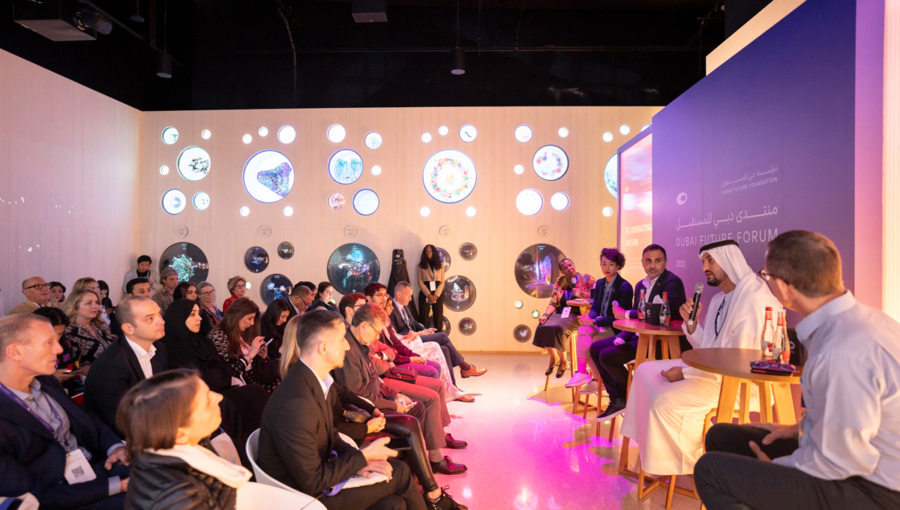Experts on global food systems today urged people to stop treating food like luxury items, stressing the need to ensure everyone everywhere has good access to quality nutrition.
During a session at the Dubai Future Forum 2023, the world’s largest gathering of futurists organised by the Dubai Future Foundation, on Tuesday titled ‘From Eating to Nourishing: Are We Ready for Billions?’, Jolene Lum from Nurasa, addressed the challenges around scaling up food sources and technology.
“Food is not Tesla – people cannot pay a premium for it,” she said. “Given that only a portion of the world’s population has access to food, we need to collaborate with different companies and distribution channels.”
The panel, being held under the theme of ‘Regenerating Nature’, addressed the critical intersection of food production, its impact on climate change, and the urgent need for innovation to feed the world’s population sustainably.
Ahmed Alshaibani from Food Tech Valley highlighted the UAE’s strategic focus on food security. He said: “We are continuously looking at emerging technologies and finding ways of how we can adopt them. In the last two years, many new technologies have emerged, but we need to access them in terms of commercial viability, be agile in adoption and prepare ourselves for the future.”
David Bucca of ‘Change Foods’ warned: “70% of antibiotics are fed to farm animals. This is a bigger threat to humanity than climate change.”
But Bruce Friedrich from ‘The Good Food Institute’ emphasised how alternative food sources can “help combat antibiotic issues and reduce the environmental impact of traditional livestock farming”.
In another session titled ‘Seeding the Future: What’s in Your Eco-vault?’ panelists addressed the topic of food security. Christine Gould from ‘Thought for Food’ said: “Regenerative agriculture and working with nature offers a path forward.”
Nithiya Laila from SG Seedxchange commented: “Initiatives for change in food security must consider regenerative farming, indigenous food systems, and grassroots engagement.”
Another session addressed conversations about future foresight. Dr Andrew Merrie from Planethon said: “Moving beyond net zero requires more than technological advancements; it’s a social goal.”
According to Alice Ruhweza from WWF International, the future of food systems “lies with youth”. “We must think creatively, involve the youth in decision-making, and explore diverse scenarios for the future,” she said.
The ‘Regenerating Nature’ theme concluded with a session titled ‘From Hindsight to Foresight: How Can We Tap into Indigenous Wisdom to Prepare for the Future?’ exploring the impact of indigenous knowledge systems on strategic foresight.
“The values we carry influence the future we envision. Knowledge systems help us to understand our place in the world,” said Samantha Matters from ‘Future Ancestors Services’.
